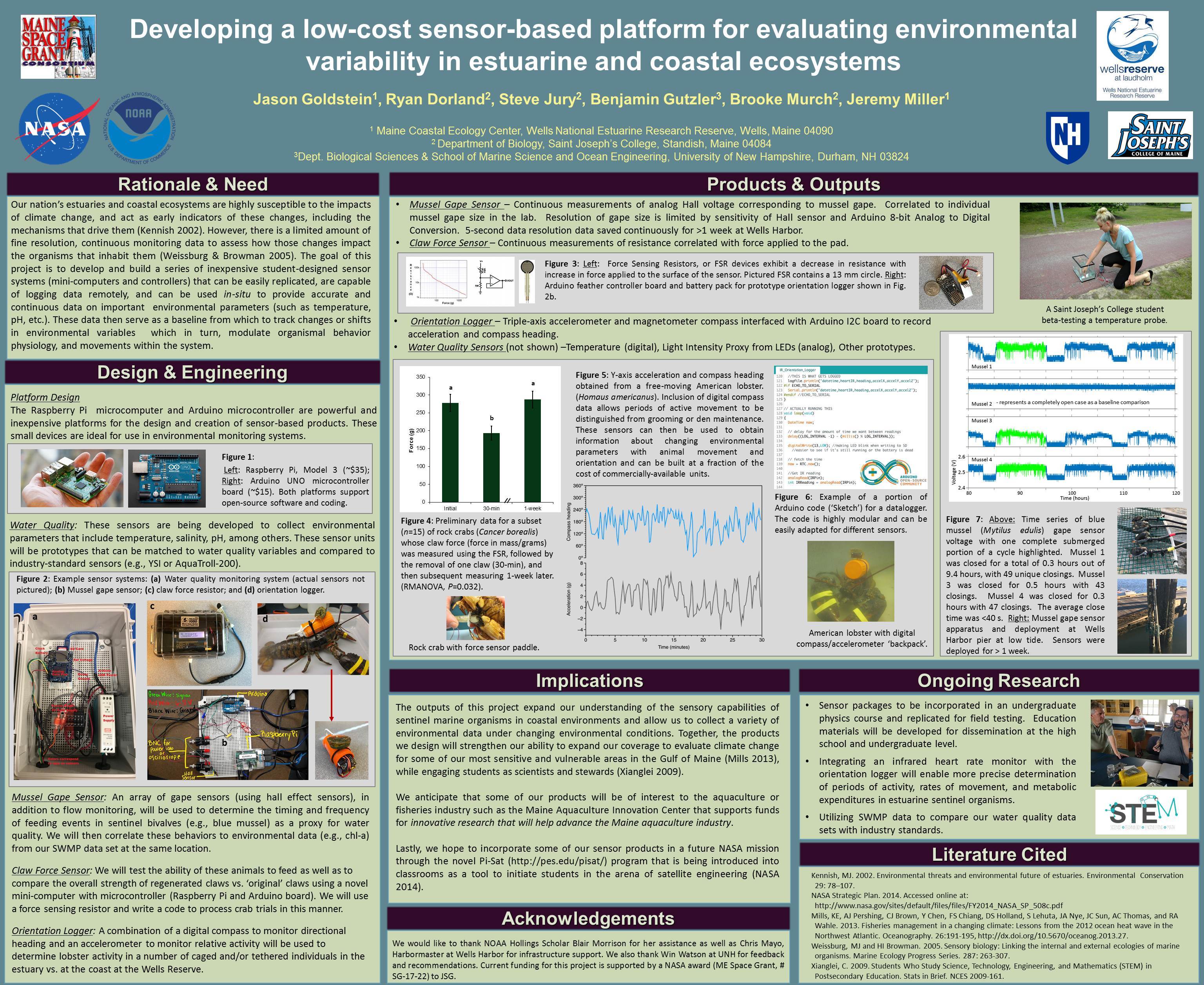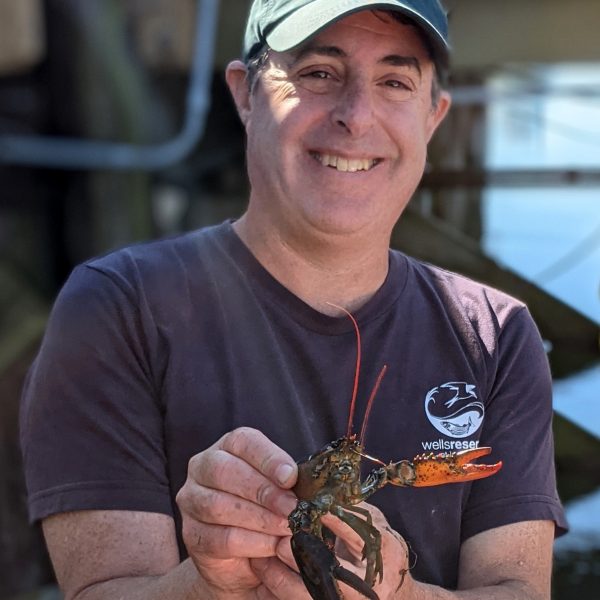Developing a sensor-based platform for evaluating climate change in estuarine and coastal ecosystems
Goals
- Create a series of inexpensive sensor systems that can be readily replicated and used in situ to provide wide coverage for gathering short- and long-term data related to environmental changes.
- Design and implement sensor systems to detect changes in sentinel marine organisms in coastal ecosystems as a way to examine alterations to those behaviors due to climate change.
Project Period
2017
Activities
Use Raspberry Pi and Arduino mini-computers, and associated electronic sensors, to monitor aspects of water quality and behavior in marine organisms.
Objective 1: Water Quality Sensors
Sensors will collect environmental parameters including temperature, pH, current, salinity, chlorophyll-a, and dissolved oxygen in the reserve's estuaries. Sensors will be prototypes for other ecological monitoring devices that can be matched to water quality variables associated with climate change (e.g., acidification, increased salinity variability, changing chlorophyl-a concentration) and calibrated and compared against an industry-standard sensor (AquaTroll-200 data logger).
Objective 2: Bivalve Feeding Monitoring Sensor
An array of gape sensors (using Hall effect sensors), in addition to flow monitoring, will be used to determine the timing and frequency of feeding events in sentinel bivalves (e.g., blue mussel and eastern oyster) as a proxy for water quality.
Objective 3: Activity and Orientation Logger
A digital compass and an accelerometer will monitor lobster activity in caged and/or tethered individuals in the estuary versus coastal waters at the reserve.
Products
Articles
- Brooke Murch ’18 Conducts Scientific Sensor Research at Wells National Estuarine Research Reserve (sjcme.edu/science)
- Testing DIY High Tech Gear with Grant from NASA (PDF Watermark, summer 2017)
- Conference poster (JPG)
Partners
Funding


